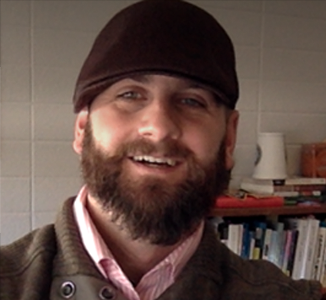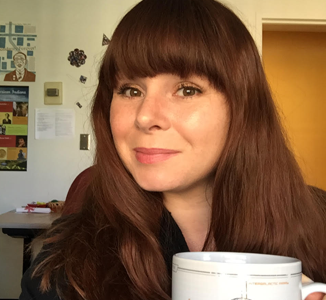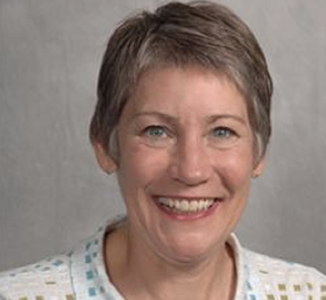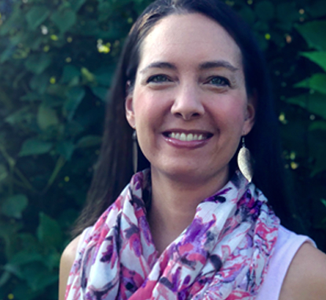Copyright, Content, and Control
Student Authorship across Educational Technology Platforms
Timothy R. Amidon, Les Hutchinson, TyAnna Herrington, and Jessica Reyman
Authorship in an Age of Digital Composing Platforms
In revisiting the Kairos special issue on Copywrite, Plagiarism, and Intellectual Property (IP) after two decades, it's clear that the 90s were a watershed moment for considering intellectual property (IP) within the discipline of writing studies. Andrea Lunsford and Susan West (1996) chided the field for "ignor[ing] debates about intellectual property" (p. 383), calling on members to explore "[how] the vocabulary of exclusionary ownership and rights [had] come to dominate the American vernacular almost without notice" (p. 387). Members of the Conference on College Composition and Communication (CCCC) who shared interests in copyright, authorship, and ownership formed the CCCC IP Caucus and CCCC IP Committee (K. Lunsford, 2009). Kairos and Computers and Composition each published special issues on IP. Meanwhile, legal and technological changes were unfolding that would have a profound impact on composing and authorship in the coming decades: the first social media platforms, America Online's AIM and sixdegrees.com, were launched; Shawn Fanning and Sean Parker released the peer-to-peer (P2P) filesharing platform Napster; and Congress enacted two amendments to the Copyright Act of 1976, the Digital Millennium Copyright Act (DMCA) and the Copyright Term Extension Act (CTEA).
There is no longer any doubt about whether the field has been paying attention to "the question of who owns language" (Lunsford & West, p. 383). Today, a vast trove of IP scholarship exists within disciplinary coffers, ranging from issues of textual circulation (e.g., DeVoss & Porter, 2006; Edwards, 2018; Gries, 2015; Ridolfo & DeVoss, 2009) and plagiarism (e.g., DeVoss & Rosati, 2002; Howard, 1999; 2007; Johnson-Eilola & Selber, 2007; Vie, 2013) to ownership (e.g., Amidon & Reyman, 2015; Barlow, 2015; Lunsford, 1999; Reyman, 2010; Sidler & Wickman, 2015) and cultural appropriation (e.g., Banks, 2011; Haas, 2012; Rios & Johnson Sackey, 2015; Sano-Franchini, Tasaka, & Ledbetter, 2015). Moreover, a robust strand of work in this area has explored how legal statutes, such as those portions of copyright law that respectively deal with fair use and work-for-hire, influence literate practice in academic and civic contexts (e.g., Galin, 2011; Galin & Latchaw, 2010; Herrington, 1999a; 1999b; 2003; Lee, 2009; Reyman, 2006; Rife, 2007, 2009; Vee, 2010). The rise and proliferation of digitally networked composing has exerted considerable stress on legal and theoretical conceptions of authorship, prompting scholars in writing studies and digital rhetoric to revisit deeply held ideas about the relationships of textuality, ownership, privacy, and human agency.
In many contemporary contexts, composing necessitates interaction with digitally networked platforms: contributing content; uploading images, sound, and video; curating networks of followers; leaving comments; chatting within messaging apps; interacting with bots and algorithms; and sharing, liking, reblogging, and retweeting content. Each activity performed within and through a platform produces content, data, and metadata, thus constituting part of the composing process (Amidon & Reyman, 2015; Beck, 2015; Boyle, 2016a; Johnson-Eilola, 2010; Reyman, 2013). Yet platform‐based composing presents a variety of ethical and legal tensions for IP, as digitally networked composing practices blur the tidy boundaries that have separated writers from readers, content from data, even human author from machine.

As Dustin Edwards and Bridget Gelms (2018) observed in their special issue of Present Tense, the study of digital ecologies must necessarily include the study of platforms themselves and how they shape rhetorical activity and function as "rhetorical forces." Platforms are technologies that host and manage users' content data, but they are not neutral intermediaries. As Edwards and Gelms argued, "platforms promise to be catalysts for public participation, but they also mask their role in facilitating or occluding that participation. Platforms make decisions, but they often downplay, obfuscate, and/or black box those decisions." When considering IP in the digital composing processes of our students, then, we must consider carefully the platforms employed for teaching and learning in our writing classrooms and programs, within our schools and universities, and in the discipline.
Indeed, the complexities of composing via platforms extends into higher education contexts, where institutional authors employ an array of educational technologies to realize institutional aims of teaching and learning: managing resources, communicating with the campus community, and assessing practice. Through their digitally networked composing practices, a wide variety of academic authors, including undergraduate and graduate students, contingent and tenure-stream faculty, administrators, support staff, and even university visitors, make contributions that add considerable value to platforms. For students, these practices might range from uploading a critical essay to a plagiarism detection service (PDS) or composing a discussion forum post housed within a learning management system (LMS) to commenting on a draft of a peer's writing in a Google Doc and annotating readings housed within an electronic textbook (eText). In the course of their learning, students are also asked to compose with and through social media platforms, such as blogs, wikis, Twitter, and public discussion forums. Yet the range of contributions students make to these platforms for teaching and learning are rarely treated as authored texts in practice. By this, we mean that students, as composers within these platforms, are rarely afforded authorial rights to the content, data, and metadata they have introduced. Where intellectual property law is designed to treat all authors equally, educational practices that rely on technological platforms often fail to treat students' work as authored work, creating an inequity that favors technological and institutional control over students' ownership rights (Amidon, 2011; Herrington, 2010).
Consequently, this webtext considers how educational technology platforms challenge student authorship and ownership. For the purposes of this discussion, we define educational technology platforms broadly to include any service or technology that facilitates and manages student learning, from the development of content, sharing and circulation of content, and connection to other writers and readers, to the management of classroom practices such as class discussion and developing and submitting classwork. Put differently, we understand educational technology platforms as tools taken up whether formally or informally in pursuit of learning and teaching. The term "educational technology" can be misleading if it is used to gesture exclusively toward those platforms and tools that were designed explicitly for use in educational settings. This is not to say there aren't notable differences between a platform that is predominately understood as an educational technology and a platform that is predominately understood as social media. Rather, what we mean to suggest is that educators, administrators, and students shape technological ecologies for their classrooms, programs, and institutions whenever they make formal and informal choices about which tools to take up, which to eschew, and which to utilize in creative or unexpected ways.
Thus, this webtext considers student authorship and IP issues as they extend across three platforms commonly used in educational contexts: Turnitin, Twitter, and Canvas. These platforms represent a range of platforms types—a plagiarism detection system, a social media platform, and a learning management system—and support an assortment of composing practices and platform-based interactions that give rise to the types tensions in authorship which we believe students, educators, administrators, and platform designers ought to be thinking more deeply about. Specifically, we are concerned that the distributed forms of collaborative composing enacted across networked, hybrid learning environments may too often position students in coercive, asymmetrical authorial relationships to the digital tools that are mandated in classrooms and schools (Gilliard, 2017; Morris & Stommel, 2017; Watters, 2017). And we are concerned that educational platforms that are commonly used for learning and teaching do not facilitate or allow for student authors to exert ownership and control over their own contributions. Where the law defines students' legal status as authors in the same way that it does for any other authors, their authorial rights are often unacknowledged in educational settings, exposing their intellectual products to manipulation or misappropriation.
We have organized the webtext into six main sections. Here in the INTRODUCTION, we describe the exigency that prompted us to explore student authorship and ownership in the context of educational technology platforms, extend brief bios about the authors who contributed to this project, and offer a memorial to TyAnna K. Herrington, a brilliant friend, colleague, and collaborator, who passed away in the fall of 2018. In the AUTHORSHIP section, we offer audiences a brief primer on the legal foundations that govern authorship within in the U.S., laying stress on the work-for-hire doctrine and fair-use provisions of U.S. Copyright Act. In the TENSIONS section, we examine three characteristics of digitally networked composing that exert considerable tensions on theoretical and legal conceptions of authorship: (1) the asymmetry of composing infrastructures and interfaces, (2) the im/materiality and in/visibility of composing activities and products, and (3) the control and circulation of textual contributions. In the PLATFORMS section, we (1) offer three hypothetical scenarios that illustrate why these tensions matter (or should matter) to students, educators, and administrators who use (or select platforms for use) in educational settings, and (2) sketch a heuristic that stakeholders might employ to take stock of elements of platforms which give rise to tensions in the management and control of student authored contributions. Within the subpages of this section, TURNITIN, TWITTER, and CANVAS, we have developed IP Cast discussions where we demonstrate how the heuristic might be applied to identify tensions in authorship and ownership specific to these platforms. In the IMPLICATIONS section, we call on students, educators, and administrators to work toward altering how they select, integrate, and enact educational technology platforms in learning and teaching environments. Finally, we offer information on the sources of information, code, images, and other resources we made use of in the REFERENCES section, as well as acknowledgements and thanks to those who supported us during the design and composition of this webtext.

Timothy R. Amidon
Tim Amidon, PhD, is an Assistant Professor in the Department of English at Colorado State University (CSU) and the Department of Environmental and Occupational Health in the Colorado School of Public Health at CSU, where he teaches undergraduate and graduate courses in digital rhetorics, multimodal composing, digital pedagogy, and social science writing and research. His scholarship, which explores the interrelationships of technology, authorial agency, and ownership, has appeared in Hybrid Pedagogy, Communication Design Quarterly, Kairos: A Journal of Rhetoric, Technology, and Pedagogy, and edited collections such as The Routledge Companion to Media Education, Copyright, and Fair Use (Ed., Hobbs) and Cultures of Copyright (Eds., DeVoss & Rife). He's a past chair of the CCCC IP Caucus (#4cip), and can be found on the tweetzmachine @timothyamidon.

Les Hutchinson
Les Hutchinson is an Assiatant Professor of English at Boise State University in the TEchnical Communication Program. Her research brings together
cultural and digital rhetorics, particularly at the
intersection of intellectual property and
surveillance. She has published on doxing, anonymity,
whistleblowing, and feminist research methodologies in
Computers and Composition and The
Routledge Handbook of Digital Writing and Rhetoric
(Eds., Alexander & Rhodes). Her dissertation, Solidarity, Safety, and Online Sovereignty, looks at how
Chicanx and Indigenous women use social media
platforms as forms of resistance and cultural
expression despite the ways those platforms
appropriate the data collected from them. She can
easily be reached on Twitter (@techairos), where she
curates a frequent presence and enjoys a good
gif/meme.

TyAnna K. Herrington
TyAnna K. Herrington, JD, PhD, is a Professor in the School of Literature, Media, and Communication at Georgia Tech. She specializes in intellectual property law and international technical communication. Her books include Intellectual Property on Campus: Students' Rights and Responsibilities; Controlling Voices: Intellectual Property, Humanistic Studies and the Internet; and A Legal Primer for a Digital Age. Her articles treat issues in law as well as those in international communication and global Internet-connected projects. She's an active member and former chair of the CCCC Intellectual Property Caucus and has performed extensive service for the field over the course of her career, including as the previous Information Officer of ATTW and as a member of NCTE's National Standing Committee on Technical and Scientific Communication.

Jessica Reyman
Jessica Reyman, PhD, is Associate Professor of English at Northern Illinois University. Her teaching and research interests include digital rhetoric, multimodal composing, copyright and intellectual property, and law and ethics online. She has been a member of the CCCC IP Caucus since 2004, and has also served as a chair. Her scholarship addresses issues of law and ethics in digital rhetorical ecologies, including the intersection of law and policy, platform design and algorithms, and rhetorical practice in online environments. She is author of The Rhetoric of Intellectual Property: Copyright Law and the Regulation of Digital Culture (Routledge, 2010), and her work has appeared in College Composition and Communication, Computers and Composition, College English, and Technical Communication Quarterly. She is currently working on an edited collection titled Digital Ethics: Rhetoric and Responsibility in Online Aggression, Hate Speech, and Harassment.
Remembering TyAnna
Disclaimers
The information and ideas contained in this webtext are not intended to be understood as legal advice, but rather as an exploration of the potential tensions that may exist between how authorship functions as a legal concept and how authorship is practiced and theorized in educational contexts.
Webtext design adapted from © Escape Velocity by HTML5 UP under a Creative Commons CC BY 3.0 license.